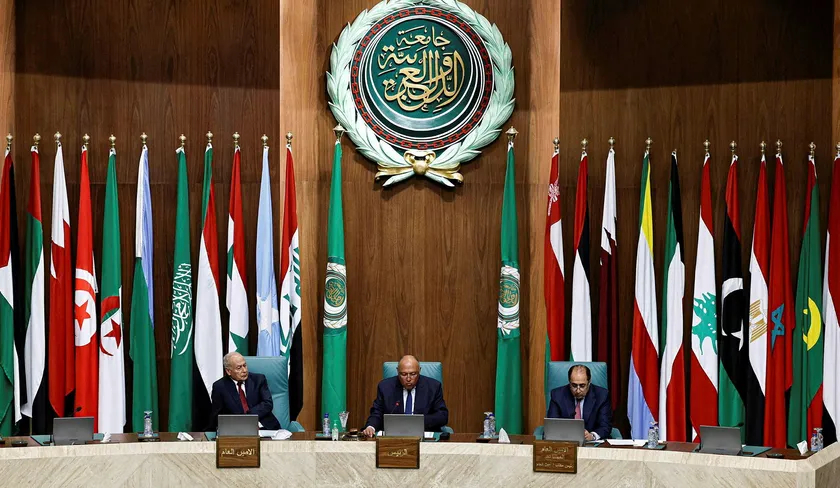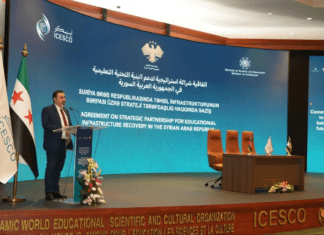
The Arab League has officially ceased referring to Hezbollah as a “terrorist organization,” according to an announcement made by the league’s assistant secretary-general on Saturday. In a televised statement on the Egyptian Al-Qahera News Channel, Hossam Zaki said, “In previous Arab League decisions, Hezbollah was designated as a terrorist organization, and this designation was reflected in the resolutions, leading to the severing of communication based on these decisions.” Zaki made this statement following his visit to Beirut.
“The member states of the League agreed that the label of Hezbollah as a terrorist organization should no longer be employed,” Zaki stated. He attributed this decision to the fact that “the designation of Hezbollah as a terrorist organization no longer applies,” emphasizing that “the Arab League does not maintain terrorist lists and does not actively seek to designate entities in such a manner.”
On March 11, 2016, the Arab League classified Hezbollah as a “terrorist organization,” a decision marked by reservations from Lebanon and Iraq. The League called for Hezbollah to “cease promoting extremism and sectarianism, refrain from meddling in the internal affairs of countries, and withhold any support for terrorism and terrorists in the region.” This classification followed a similar designation by the Gulf Cooperation Council (GCC) on March 2, 2016.
The Lebanese daily Al-Akhbar reported that Zaki visited Beirut and met with Muhammad Raad, head of the Loyalty to the Resistance bloc affiliated with Hezbollah. This meeting marked the first contact between the Arab League and Hezbollah in over a decade.
During his visit, which began on Tuesday, 25 June, Zaki held meetings with various Lebanese officials and political and parliamentary leaders representing Lebanon’s diverse political spectrum. The discussions focused on de-escalating tensions in southern Lebanon following the onset of the Israeli war on Gaza and addressing Lebanon’s prolonged presidential vacancy, which has persisted for over 19 months.
Zaki’s visit and the Arab League’s announcement coincided with heightened concerns over a potential escalation between Hezbollah and Israel. Tensions have escalated along Lebanon’s border with Israel amid cross-border attacks between Hezbollah and Israeli forces, as Tel Aviv continues its offensive on the Gaza Strip. The conflict has resulted in the deaths of more than 37,800 people since October 7.
Hezbollah has linked the cessation of its attacks on Israel to the end of Tel Aviv’s onslaught on Gaza. The Arab League’s decision to delist Hezbollah as a terrorist organization reverts the designation made in March 2016. This move potentially opens new channels of communication with the Shiite group, signaling a significant shift in the League’s approach. Zaki emphasized that the 2016 decision was made on an ad-hoc basis, following the GCC’s designation of Hezbollah.
The change in the Arab League’s stance reflects a broader reconsideration of Hezbollah’s role and influence in the region, as well as the complex political dynamics in Lebanon and the broader Middle East.








